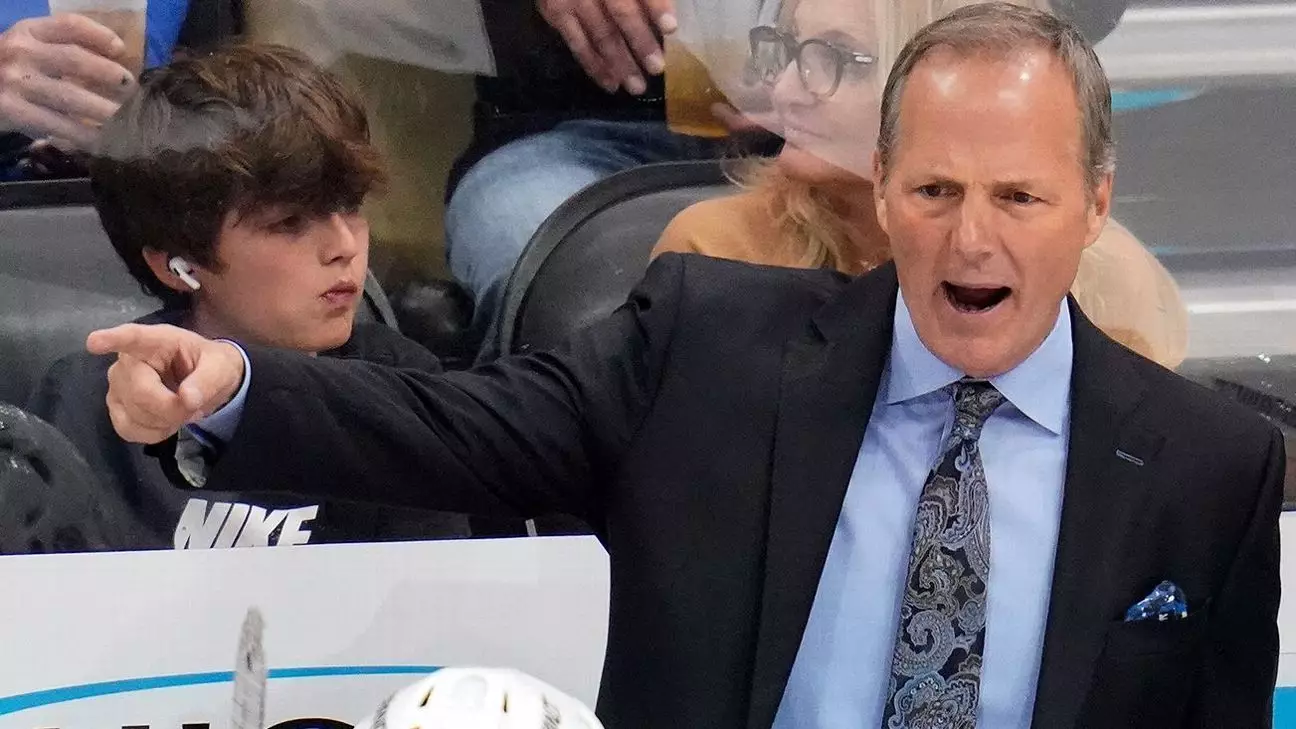In a decisive move that reassures fans and analysts alike, Tampa Bay Lightning’s general manager Julien BriseBois confirmed on Friday that head coach Jon Cooper will stay at the helm for the 2025-26 season. This announcement comes hot on the heels of a disappointing first-round exit from the Eastern Conference playoffs at the hands of their rivals, the Florida Panthers. Speculation ran rampant about potential changes within the management structure, particularly around Cooper’s future with the franchise. However, this assertion not only signals continuity but also emphasizes the importance of stable leadership in professional sports, particularly after facing setbacks.
Jon Cooper, at age 57, has navigated an impressive journey with the Lightning since he took the reins in March 2013. Under his guidance, the franchise blossomed into a powerhouse, clinching two consecutive Stanley Cup championships in 2020 and 2021, along with four Eastern Conference titles over six years. His tenure is marked by a striking .638 points percentage, making him one of the most successful active coaches in today’s NHL landscape. However, recent playoff performances have raised eyebrows, with three consecutive early exits from the postseason, which inevitably stirred discussions about his job security.
Understanding the Challenges Ahead
The fact that the Lightning have faced early playoff exits in the previous three years, particularly in the face of rival teams, furthers the narrative surrounding Cooper’s leadership. After their recent elimination, Cooper’s perspective was telling; “It was our turn for a while. Now it’s theirs. And it’s our job to make sure it’s our turn again.” This acknowledgment of the cyclical nature of competition illustrates Cooper’s humility and strategic mindset, both essential traits for a leader navigating the highs and lows of professional sports.
While Cooper’s past successes undoubtedly warrant a closer examination of the broader dynamics at play, the responsibility of addressing current shortcomings lies not solely on him. It’s critical to recognize that coaching success does not solely hinge upon the coach’s ability to adapt and win; the players, management, and organizational culture play equally vital roles. The Lightning’s recent playoff struggles are a collective challenge that requires introspection across the entire franchise.
Building a Lasting Legacy
BriseBois’s trust in Cooper echoes a larger philosophy about building a sustainable, winning culture. By reaffirming Cooper’s position, the Lightning organization is signaling its commitment to a long-term vision rooted in collaboration and resilience. The relationship between Cooper and BriseBois, cultivated over more than a decade, speaks volumes about the importance of teamwork in achieving success. The two have worked hand in hand to construct a formidable roster, and BriseBois’ remarks about a shared future suggest an ongoing commitment to mutual growth.
Moreover, Cooper’s connection to the Lightning extends beyond success on the ice; it encompasses personal ties to the community as well. His dedication is evident in remarks emphasizing Tampa Bay as home— a place where his family has built roots. This emotional investment may drive him to strive for redemption and rekindle the competitive fire, reigniting the team’s ambitions while instilling a profound sense of belonging among players and fans alike.
The Future Landscape of the Lightning
While Cooper’s return addresses immediate concerns, uncertainty looms around the possibility of further changes within the franchise. There has been ongoing speculation concerning the Lightning’s interest in recruits like Isaac Howard, a promising forward from Michigan State, who has been awarded the Hobey Baker Memorial Award. Rumors indicate that Howard may opt to become a free agent rather than signing with Tampa Bay, largely due to his desire for autonomy in selecting a suitable team fit. This uncertainty in player acquisition is yet another dimension to the challenges that Cooper and BriseBois will face in the coming years.
As Cooper continues his journey with the Lightning, the cooperation between sports management and coaching personnel will be critical in addressing the hurdles ahead. The foundational work that has secured the franchise’s previous triumphs needs to be meticulously examined and rejuvenated to overcome existing limitations. The Lightning have an opportunity—not just to reclaim their status as champions but to further evolve their dynamic as a team that consistently delivers thrilling, competitive hockey. It is this dynamic evolution combined with a visionary approach to coaching that can propel them back into contention in the fierce landscape of the NHL.

